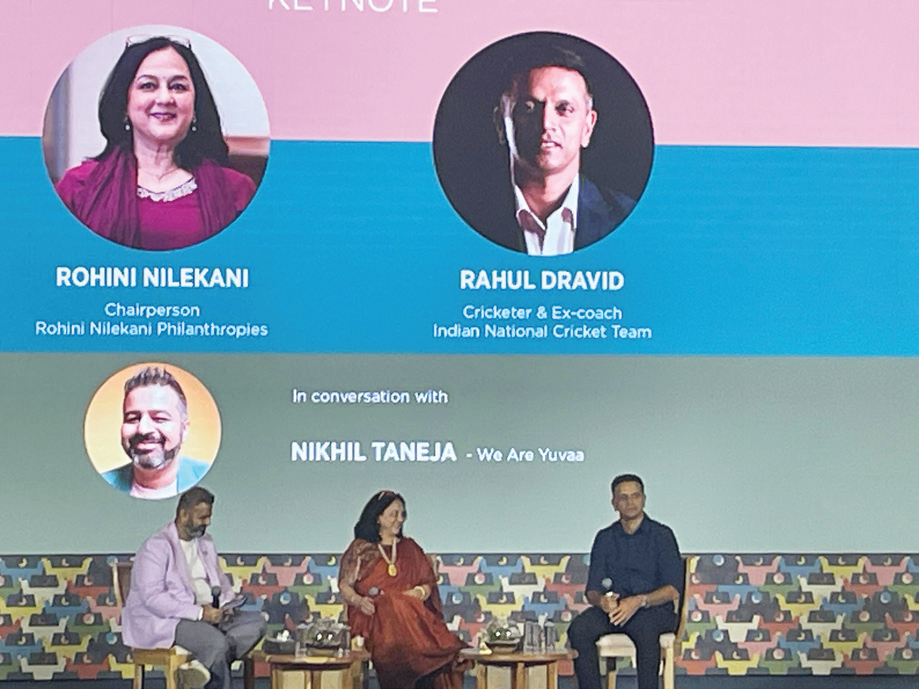
Shaping future of mental health conversations in B'luru
Co-hosted by leading organisations, this mental health festival unites experts & communities to combat stigma, foster awareness & promote holistic well-being through activities.
NT Bengaluru: Inaugurated on Saturday, Mannotsava, the National Mental Health Festival 2024, is co-hosted by Rohini Nilekani Philanthropies (RNP), the National Institute of Mental Health and Neurosciences (Nimhans), and the National Centre for Biological Sciences (NCBS). The festival was inaugurated by Rohini Nilekani, Chairperson of RNP, Dr. Pratima Murthy, Director of NIMHANS and Professor L.S. Shashidhara, Centre Director at NCBS. Day one of the Mannotsava featured a diverse lineup of activities, including expert-led discussions, art performances, interactive workshops and informative stalls.
By adopting a holistic approach, the festival emphasises both education and action, empowering individuals and communities to proactively address mental health challenges. Key sessions during the festival explored critical topics such as addiction, chronic illness, youth mental health, parenting and healthy ageing. With over 105 speakers, 40 sessions, and 20-plus stalls and installations, Mannotsava aims to make a significant impact on mental health advocacy. Rohini Nilekani remarked, “Following the pandemic, mental health has emerged as a topic that needs much more discussion. However, we lack public platforms that bring together experts, civil society, researchers, and artists to dialogue on our individual and collective wellbeing.
Mannotsava seeks to fulfil that need, enriching ongoing discourse around mental health.” Dr Pratima Murthy emphasised the festival's role as a bridge between science and society, creating space for sharing credible information related to mental health. She expressed satisfaction with the diversity of contexts and themes present at Mannotsava. Professor Raghu Padinjat from NCBS highlighted the unique opportunity presented by emerging technologies in understanding mental illness, suggesting that such advancements could lead to innovative solutions for mental health challenges.
Rahul Dravid, former cricket player, ex-captain and ex-coach of the Indian national cricket team, emphasised the significance of teaching young boys and men in sports how to handle failure. He stated, “It is important to teach young boys and men in sports to deal with failure. Keeping the door open for conversations is one way.” Dravid shared his own journey, highlighting how playing cricket was more than just a profession for him; "It was a passion that brought immense joy. " he remarked.
 English daily published in Bengaluru & Doha
English daily published in Bengaluru & Doha






